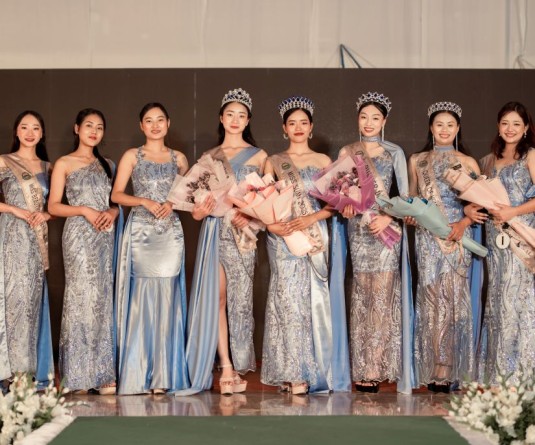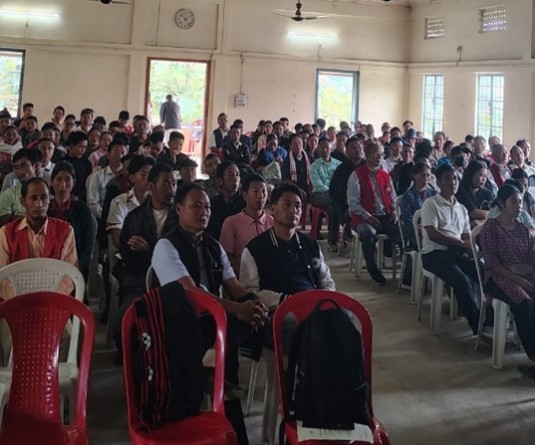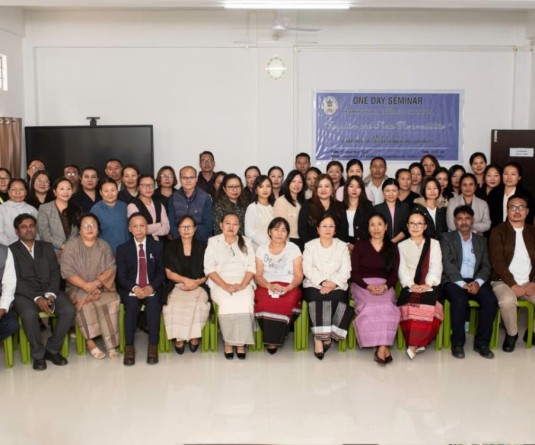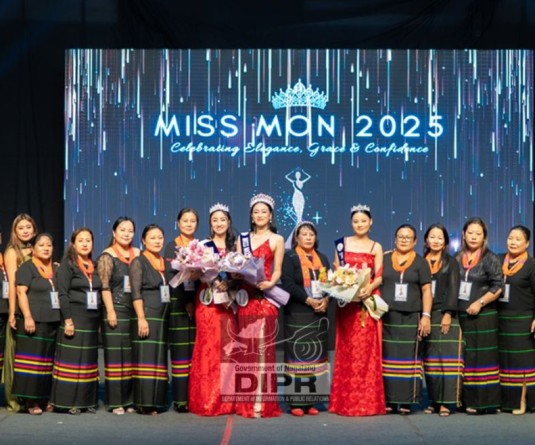Dr Sushil Kumar Vimal, team leader presenting the findings of the 17th Common Review Mission (CRM) of the National Health Mission in Kohima on November 7
Kohima, November 8 (MExN): A debriefing programme for the 17th Common Review Mission (CRM) of the National Health Mission was held in Kohima on November 7 with officials highlighting strong community participation in Nagaland’s health sector while also flagging infrastructure and human resource challenges.
The CRM team, which conducted a six-day visit to the state, assessed 13 health facilities across Mon and 12 in Zunheboto districts, including district hospitals.
Chairing the programme, Dr Keveduyi Theyo, Mission Director of NHM Nagaland, stated that the department welcomes the CRM’s findings and recommendations and will work on addressing the highlighted shortcomings.
Presenting the team’s observations, Dr Sushil Kumar Vimal, Deputy Commissioner of the National Urban Health Mission Division in the Union Health Ministry, expressed appreciation for the “good community engagement and participation in the health sector” in Nagaland.
He specifically acknowledged the “pro-active involvement” of Community Based Organisations (CBOs), Faith Based Organisations, NGOs, and village heads, noting their “generous contributions” towards infrastructure, equipment, furniture, and volunteering for upkeep of health units as “one of the greatest strengths of the state.”
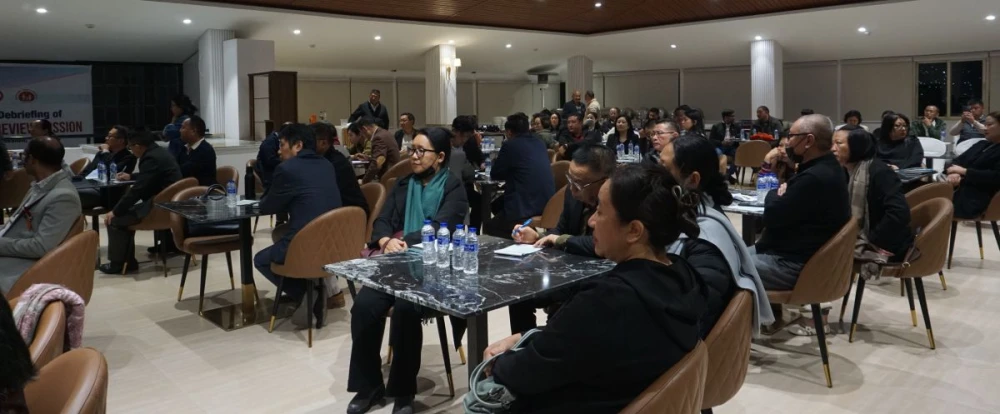
Dr Vimal pointed out that while the state has adequate health services, however, a “lack of infrastructure is one of the biggest challenges.” He commended healthcare workers for their “best efforts” to deliver services despite “difficult geographical terrain,” hard-to-reach areas, poor road conditions, and lack of mobile and internet connectivity. He noted that the health care delivery levels have put their best efforts to provide health services to the people, which is something to acknowledge.
The CRM team identified several “good practices,” including motivated healthcare providers, effective Bio-Medical Waste Management, universal CMHIS coverage for citizens not covered under AB-PMJAY, the use of the ‘Cough against TB’ app, environment sustainability initiatives using solar power, and screening of all pregnant women for Hepatitis at the sub-centre level.
The review also revealed significant challenges, such as the “irrational posting of Human Resource,” a need for more paramedical staff training, delays in salary releases due to late funds from the Ministry as a result of delay in compliance to DoE conditionality (SNA–SPARSH), and a “lack of willingness of health workers to work in interior and hard-to-reach areas.”
Key recommendations from the CRM team included the development of a comprehensive HR policy, exploring incentives for manpower in hard-to-reach areas, reducing out-of-pocket expenditure for beneficiaries, and improving drug storage systems.
In his concluding remarks, Anoop Khinchi, IAS, Commissioner & Secretary for Health & Family Welfare, Government of Nagaland, commended the CRM team’s sincerity and suggested that their recommendations should serve as a Standard Operating Procedure (SoP) for all districts in the state.
He stressed the need to “focus on capacity building of the manpower as training is the base of a robust health system” and endorsed the recommendation for incentivising health workers. Khinchi also appealed to officials to make Health & Wellness Centres “more vibrant” as they are the nearest healthcare access point for people.
Dr Mereninla Senlem, Principal Director of the Department of Health & Family Welfare, in her vote of thanks, stated that the CRM’s “valuable feedback and recommendations will serve as guidelines in further strengthening our healthcare delivery system and proper implementation of all the programs.”
The Common Review Mission is a central government initiative aimed at rapid assessment of NHM implementation, analysing key strategies, priority areas, and challenges in health system strengthening across states.


